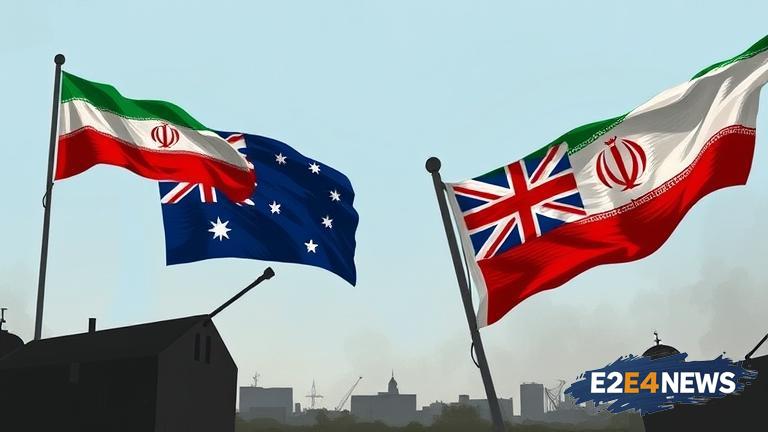Iran has strongly condemned Australia’s recent statements regarding its nuclear program, calling them ‘unacceptable’ and ‘baseless’. The Iranian government has also taken issue with allegations of antisemitism made by Australian officials, which Tehran views as an attempt to deflect attention from Canberra’s own human rights record. The row began when Australian Prime Minister Anthony Albanese made comments about Iran’s nuclear program, which Iran saw as an interference in its internal affairs. Iran’s ambassador to Australia was subsequently summoned to the Australian Foreign Ministry, where he was handed a formal protest note. The Iranian government has responded by summoning the Australian ambassador to Tehran, where he was given a stern warning about the consequences of Australia’s actions. Iran has long maintained that its nuclear program is for peaceful purposes, despite allegations from Western nations that it is seeking to develop nuclear weapons. The Australian government has been a vocal critic of Iran’s nuclear program, and has imposed sanctions on Iranian individuals and entities in response. However, Iran sees Australia’s actions as hypocritical, given its own history of human rights abuses against indigenous peoples and asylum seekers. The allegations of antisemitism made by Australian officials are also seen as a smokescreen, designed to distract from Canberra’s own shortcomings. Iran has a long history of supporting the Palestinian people, and has been a vocal critic of Israeli actions in the occupied territories. The Iranian government has also been critical of Western nations that have failed to condemn Israeli human rights abuses, and has accused them of applying double standards. The diplomatic row between Iran and Australia is likely to have significant consequences for the two nations’ relations, and may also impact on regional stability. The Middle East is already a volatile region, and the last thing it needs is another source of tension. The international community is watching the situation closely, and is urging both sides to show restraint and engage in diplomatic efforts to resolve their differences. The United States, in particular, is likely to be interested in the developments, given its own history of tensions with Iran. The European Union is also likely to be monitoring the situation, given its own efforts to negotiate a nuclear deal with Iran. In the meantime, the Iranian government is standing firm in its position, and is refusing to back down in the face of Australian pressure. The Australian government, on the other hand, is showing no signs of backing down, and is continuing to apply pressure on Iran to abandon its nuclear program. The situation is complex and multifaceted, and it is difficult to predict how it will play out. One thing is certain, however: the diplomatic row between Iran and Australia is a significant development that will have far-reaching consequences for the region and the world. The Iranian government is also calling on the international community to condemn Australia’s actions, and to support Iran’s right to develop its nuclear program for peaceful purposes. The Australian government, on the other hand, is calling on the international community to support its efforts to pressure Iran into abandoning its nuclear program. The situation is a classic example of the complexities of international diplomacy, and the challenges of navigating competing interests and agendas. As the situation continues to unfold, one thing is clear: the diplomatic row between Iran and Australia is a significant development that will have far-reaching consequences for the region and the world.
